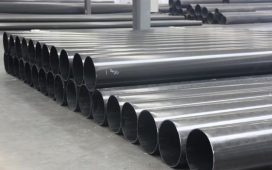In bustling urban environments, noise pollution is a persistent issue that affects the well-being of residents. From the relentless hum of traffic and the din of construction work to the commotion from nightlife and public transport, excessive noise can significantly disrupt sleep.
Poor sleep quality is linked to a host of health problems, including increased stress levels, impaired cognitive function, and heightened risk of cardiovascular diseases. Fortunately, noise barriers provide an effective solution to mitigate these disturbances and enhance sleep quality.
The Impact of Noise Pollution on Sleep
Exposure to constant noise at night can lead to sleep deprivation, which has both short-term and long-term health consequences. Noise can interrupt sleep cycles by preventing deep sleep stages, leading to:
- Increased stress and anxiety levels
- Reduced concentration and productivity
- Higher risk of developing hypertension and heart disease
Mood disturbances and mental fatigue
According to research by the World Health Organization (WHO), prolonged exposure to environmental noise exceeding 40 decibels at night can negatively impact sleep. This level of noise is common in urban settings, making noise reduction strategies essential for maintaining good health and quality of life.
How Noise Barriers Work
Noise barriers, also known as sound walls or acoustic barriers, are physical structures designed to block, deflect, or absorb sound waves from various sources. They are commonly used alongside roads, railways, and industrial sites, but can also be implemented in residential areas to shield homes from excessive noise.
Types of Noise Barriers
Noise barriers come in different forms, each with unique characteristics that contribute to their effectiveness:
- Solid Barriers: Noise barrier solutions in Singapore, for example, are made from dense materials like concrete, brick, or steel, which block and reflect sound waves away from protected areas. They are often used along motorways and busy streets.
- Acoustic Panels: Designed with sound-absorbing properties, these barriers contain materials like fibreglass, foam, or wood composites, which reduce noise by preventing sound waves from bouncing back into the environment.
- Vegetation and Green Barriers: While trees and dense shrubs provide some noise reduction, they are less effective than solid barriers. However, they contribute to a more aesthetically pleasing and environmentally friendly solution.
- Transparent Barriers: Made from acrylic or polycarbonate, these barriers allow light to pass through while still reducing noise. They are commonly used in urban areas where maintaining visibility is important.
How Effective Are Noise Barriers?
The effectiveness of a noise barrier depends on several factors, including its height, material, density, and placement relative to the noise source and affected area. Properly designed barriers can reduce noise levels by up to 10-15 decibels, significantly lowering urban disturbances to a more tolerable level.
Benefits of Noise Barriers for Sleep Quality
Noise barriers render significant benefits to the quality of our sleep in many ways such as:
1. Reduction in Noise Levels
Noise barriers effectively lower sound levels, making urban noise significantly less intrusive. A reduction of even 10 decibels can make a noticeable difference, allowing residents to fall asleep faster and experience fewer disruptions throughout the night.
2. Decreased Stress and Anxiety
Exposure to constant noise at night has been linked to higher levels of stress hormones like cortisol. By minimising noise pollution, barriers help create a calmer atmosphere, promoting relaxation and reducing anxiety, both of which are essential for achieving restful sleep.
3. Improved Circadian Rhythm Regulation
The body’s natural sleep-wake cycle, or circadian rhythm, is easily disrupted by noise. Sudden loud sounds can trigger micro-awakenings that prevent individuals from reaching deeper stages of sleep. By dampening sound disturbances, noise barriers allow for a more consistent sleep pattern, ensuring better rest and overall well-being.
4. Enhanced Privacy
In densely populated urban settings, noise barriers also provide an additional benefit—privacy. They help reduce the transmission of both incoming and outgoing noise, creating a quieter and more secluded environment for residents. This added sense of privacy can contribute to improved mental comfort and relaxation before bedtime.
5. Health Benefits Linked to Better Sleep
By improving sleep quality, noise barriers contribute to numerous long-term health benefits, such as:
- Lower risk of cardiovascular diseases
- Enhanced immune system function
- Better cognitive performance and memory retention
- Reduced likelihood of mental health issues such as depression and anxiety
Additional Noise Reduction Strategies
While noise barriers are highly effective, they work best when combined with other soundproofing techniques to create an optimally quiet environment. Consider implementing the following strategies:
1. Install Soundproof Windows and Doors
Double-glazed windows and insulated doors help to further reduce external noise. They create an additional layer of sound insulation, preventing unwanted noise from penetrating indoor spaces.
2. Use White Noise Machines
White noise machines produce a consistent ambient sound that masks disruptive noise from the environment. These devices are particularly useful in masking sudden noises that might otherwise interrupt sleep.
3. Incorporate Heavy Curtains and Carpets
Soft furnishings such as thick curtains, rugs, and upholstered furniture absorb sound waves, minimising indoor noise reflections and echoes.
4. Consider Living Walls and Greenery
Plants and vertical gardens can act as natural sound absorbers. While they may not be as effective as solid noise barriers, they contribute to a more pleasant and tranquil atmosphere.
5. Position the Bedroom Strategically
If possible, arrange your bedroom layout so that the bed is positioned away from direct noise sources such as windows facing the street. Using bookshelves or additional insulation between walls can further dampen noise levels.
Conclusion
Noise barriers play a role in improving sleep quality in urban areas by significantly reducing noise pollution. They not only help individuals fall asleep more easily but also ensure deeper and more restorative sleep. Combining noise barriers with other soundproofing techniques, urban residents can create a more peaceful sleeping environment, leading to better overall health and well-being.
As urban areas continue to expand and noise pollution becomes an even greater concern, investing in effective noise reduction solutions will become increasingly essential. For anyone struggling with sleep disturbances due to environmental noise, noise barriers offer a practical and long-term solution to reclaiming restful nights.







